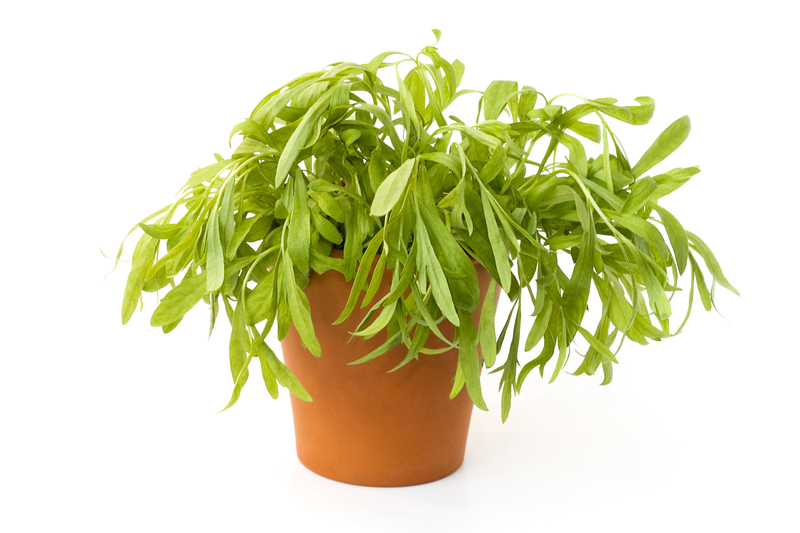Innovative Ways to Convert Waste into Rich Soil
Posted on 22/09/2025
Innovative Ways to Convert Waste into Rich Soil
Are you searching for effective methods to turn waste into fertile soil? With the urgent global need for sustainable waste management and regenerative agriculture, finding creative solutions for reusing organic waste has never been more critical. In this article, we'll explore cutting-edge and practical ways to transform waste into nutritious soil, benefiting both your garden and the environment.

Why Turn Waste into Rich Soil?
Soil is the foundation of all terrestrial ecosystems. However, soil quality is under threat worldwide due to industrial farming, erosion, and over-reliance on synthetic fertilizers. Converting waste into rich soil serves a dual purpose: it diverts organic matter from landfills and replenishes the earth with essential nutrients. By embracing innovative waste-to-soil strategies, anyone--home gardeners, urban dwellers, farmers--can play a part in building healthier soils and a more circular economy.
Understanding the Basics of Soil Building from Waste
Soil formation from waste relies on the breakdown of organic matter, such as food scraps, garden trimmings, and even some paper products, into humus--the dark, nutrient-rich matter that promotes plant health. Microorganisms, fungi, and invertebrates accelerate this process. With the right innovation, even problematic wastes can be safely and effectively converted.
Key Benefits of Creating Rich Soil from Waste
- Reduces landfill waste: Organic materials make up a significant portion of trash. Diverting them extends landfill life.
- Improves soil fertility: Nutrients from decomposed waste boost plant growth and yield.
- Enhances soil structure: Organic matter improves water retention and drainage.
- Lowers greenhouse gas emissions: Turning waste into soil keeps methane-producing materials out of anaerobic landfill environments.
- Supports biodiversity: Healthy soils are home to countless microbes, insects, and fungi.
1. Traditional Composting Reimagined
Composting is the original way to change waste into soil, but today's technology and methods offer exciting new twists.
Hot Composting with Smart Sensors
- Monitors temperature, moisture, and pH for faster decomposition
- App integration: Get real-time updates for turning or adjusting your compost pile
- Reduces labor: Early warnings prevent odor or pest problems
In-vessel and Tumbler Composting
Enclosed composters, whether barrel-shaped tumblers or upright bins, offer a faster, cleaner way to produce nutrient-dense soil at home or in urban spaces. Their design prevents rodents, streamlines aeration, and enables year-round operation.
Community and Municipal Composting Programs
Many cities now collect food waste and green waste curbside. Shared composting hubs process large loads, often adding biochar or minerals for especially rich compost.
2. Vermiculture: Harnessing Worm Power
Vermicomposting uses earthworms--especially red wigglers--to break down kitchen scraps into castings, an unbelievably fertile and microbe-rich form of soil.
- Indoor and outdoor bins: Suitable in apartments, classrooms, or backyards
- Odorless operation--when managed correctly
- Liquid worm tea: A potent, natural fertilizer byproduct
- Speeds up organic waste breakdown and produces rich soil faster than traditional compost
Innovations in Vermiculture
- Stackable modular worm bins: Save space and allow easy harvesting of worm castings
- Sensor-equipped systems: Help monitor moisture, temperature, and pH for worm comfort
- Integrated feeding chutes: Make adding food waste easier and more hygienic
3. Bokashi: Fermenting Your Food Waste
Bokashi composting is a Japanese innovation that ferments rather than decomposes food waste. Using effective microorganisms (EM), even meat and dairy can be processed safely.
- Anaerobic fermentation: Sealed buckets prevent odors and pests
- Compact design: Ideal for small kitchens and apartments
- After two weeks: Fermented contents can be buried to finish decomposition in soil
- Bokashi tea: The liquid runoff is an excellent fertilizer for houseplants or gardens
Tech-Enhanced Bokashi
- Automatic stirring and draining features in new Bokashi bins for minimal manual effort
- Smart reminders: Apps notify you when to harvest and add new waste
4. Black Soldier Fly Larvae Composting
For serious food waste upcycling, black soldier fly (BSF) larvae offer a rapid, industrial-strength solution to convert waste into soil amendments.
- BSF larvae consume vast quantities of food waste quickly
- Their frass (waste) is an excellent high-nitrogen fertilizer
- Larvae can be harvested as a sustainable animal feed
- Requires little space; ideal for urban upcycling start-ups
Macro-composting Innovations
- Automated BSF farms with controlled climates for year-round operation
- Integrated waste collection systems: Link cafeterias or food processing plants to BSF composting units
- IoT (Internet of Things) sensors for real-time monitoring of larval development and feed input
5. Biochar: From Organic Waste to Carbon-Rich Soil Amendment
Biochar is a unique, charcoal-like substance made by pyrolyzing (burning with limited oxygen) organic waste such as agricultural residues, wood chips, or even manure.
- Locks carbon into the soil for centuries, fighting climate change
- Improves soil aeration, water retention, and microbial activity
- Reduces nutrient leaching and boost crop yields
Modern Biochar Innovations
- Mobile biochar kilns: Farmers or landscapers can process waste onsite
- Community-scale pyrolysis plants that use green energy
- Integrated soil sensors to monitor soil improvement after biochar application
6. Anaerobic Digestion: Generating Biogas and Compost
Anaerobic digesters use bacteria to decompose organic waste in oxygen-free environments, producing both biogas for energy and a nutrient-rich digestate that can be converted into soil.
- Produces renewable energy while recycling food, yard, or even animal waste
- Digestate is a potent fertilizer after proper post-processing
- Scalable from home kits to industrial facilities
Advancements in Anaerobic Digestion
- Kitchen-scale digesters for households and restaurants
- Closed-loop systems: Biogas powers local homes, while digestate nourishes community gardens
- Automated monitoring for safe, odor-free, and efficient operation
7. Innovative Crop Rotations and Green Manures
Not all waste is from kitchens or cities--farm fields generate crop residues that can be transformed into healthy soil using advanced mulching, cover cropping, and green manure techniques.
- Crimping rollers: Flatten cover crops to form natural mulch mats that decompose in place
- High-density interplanting: Maximizes biomass production and nutrient cycling
- Use of microbial inoculants to speed up residue breakdown
8. Urban Waste Upcycling: Rooftop and Vertical Composting
With growing populations in cities, urban waste-to-soil solutions are gaining traction.
- Rooftop composting systems harness solar energy and rainwater for organic breakdown
- Vertical worm farms: Fit on balconies or small yards, maximizing urban food waste recovery
- Shared composting kiosks: Neighborhood drop-off points with app-based access
9. Smart Composting Apps and IoT Integration
In the age of digital agriculture, smart composting and soil-building tools are revolutionizing waste management.
- Compost recipe calculators: Ensure perfect carbon-to-nitrogen ratios by analyzing input data
- Microbe-boosting starter kits: Add beneficial organisms tailored to specific waste types
- Automatic tumblers and mixers: App-synced for reminders, status updates, and troubleshooting
10. Upcycling Paper and Cardboard into Soil
Clean paper and cardboard, once shredded and mixed with food waste, enhance the carbon content of compost, producing superior soil amendments.
- Paper slurry composting: Soak and blend for rapid breakdown
- Cardboard mulching: Blocks weeds and composts in place
- Biodegradable packaging: Tear and compost along with yard trimmings for zero-waste systems

Best Practices for Safe and Successful Soil from Waste
- Avoid adding oils, synthetic materials, or diseased plants to home compost piles
- Shred waste for faster decomposition
- Maintain proper moisture: Aim for a wrung-out sponge consistency
- Turn piles or mix bins to ensure adequate aeration
- Monitor temperature in large piles to destroy pathogens and weed seeds
The Future of Turning Waste into Rich Soil
The drive to turn organic waste into rich, productive soil is being powered by everything from citizen science to big data and biotechnology. Innovations like community biochar projects, AI-powered waste sorting, and decentralized digesters are making soil creation from waste not just possible, but also profitable and accessible. By embracing these practices at scale--from the kitchen and backyard to farms and municipalities--we support healthy soils, resilient food systems, and a cleaner planet for generations to come.
Let's make waste a thing of the past--and create abundant soil for our shared future!
Latest Posts
Innovative Ways to Convert Waste into Rich Soil
Fostering Curiosity: Building a Child's Garden
Key Gardening Equipment for Green Space Lovers



